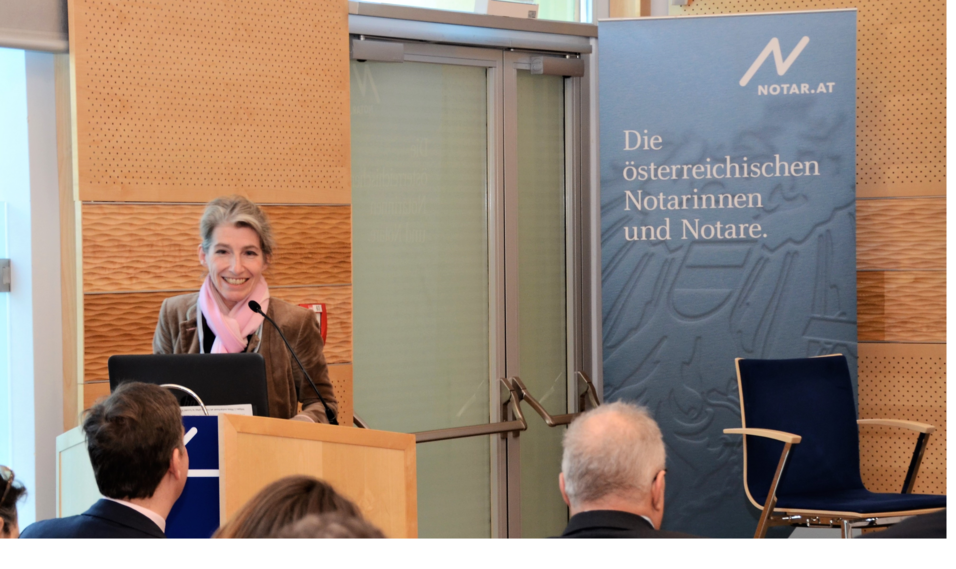The seminar, held in English and German, was opened by Ludwig Bittner, President of the Austrian Chamber of Civil Law Notaries who hailed the day as a new chapter for EU law. Having highlighted the fact that 30% of Austrian marriages have an international element to them, Bittner added that Austria had always supported the Regulations, which would now be filled with life.
After welcoming participants, Christiane Wendehorst, President of the European Law Institute (ELI), reflected on how five years ago the ELI and ÖNK pondered on how they could join forces on a project to assist European citizens. It did not take long before they settled on the ELI’s ‘Empowering European Families: Towards More Party Autonomy in European Family Law and Succession Law’ (EEF) project, one relevant to the Seminar’s theme. She thanked the ÖNK for its warm reception, (CNUE) for spreading news about the event and the EU for its support and wished those present a fruitful start.
Among the speakers was, Hrvoje Grubisic who, on behalf of the European Commission, mentioned that the Regulations complete a cycle on European family law and affect 70% of the EU’s population. Grubisic gave a comprehensive overview on various EU family law regimes and their interplay and concluded by saying that there is still a lot to be done. Other presentations were given by Matthias Neumayr, Vice-President of the Austrian Supreme Court; Orsolya Szeibert, Professor at Eötvös Loránd University and Johannes Weber, Director of the German Notaries Institute.
In the afternoon session, President Wendehorst presented a number of practical case studies pertaining to the application of the two new EU Regulations. This was followed by an interactive and lively panel discussion among speakers and participants. The event was successfully brought to an end by a final closing statement delivered by Rudolf Kaindl, Vice-President of the Austrian Chamber of Civil Law Notaries.

